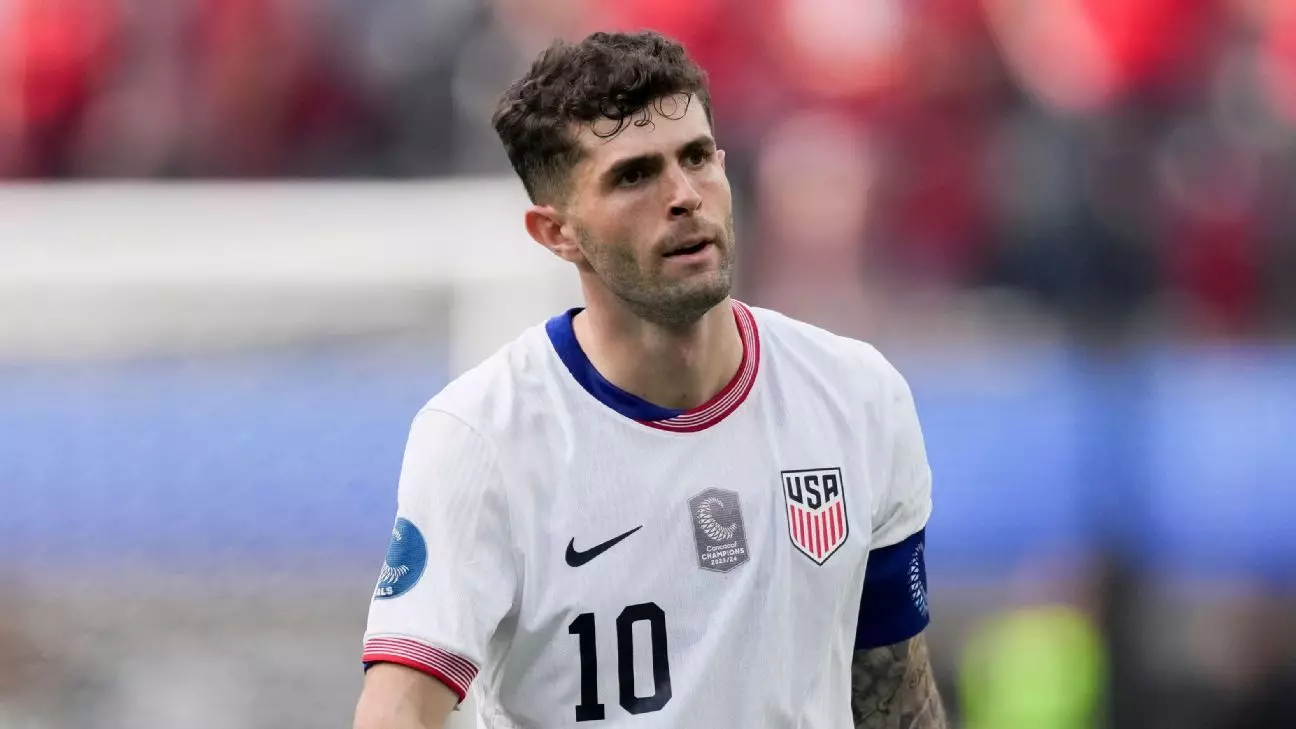In the world of sports, particularly soccer, discussions about athletes’ decisions can ignite passionate debates among fans, pundits, and former players alike. The recent controversy surrounding Christian Pulisic and his choice to withdraw from the Gold Cup has certainly sparked such discussions. The criticism levied by U.S. soccer luminary Landon Donovan highlights the tension that frequently arises when the personal needs of athletes intersect with national pride and collective expectations.
While Donovan stressed the importance of wearing the national jersey and contributing to team efforts as integral responsibilities of any player, it’s essential to delve deeper into the nuances behind Pulisic’s decision. After a grueling season with AC Milan, where he likely faced both physical strains and mental pressures, deciding to forgo additional play may be a strategic move designed to enhance his long-term performance. This begs the question: at what point does self-preservation become a necessity in the careers of elite athletes?
Understanding the Athlete’s Mindset
Pulisic’s choice to prioritize rest over participation shows a significant evolution in how athletes are starting to view their careers, increasingly considering mental health and physical readiness as pivotal to sustained performance. His father’s defense, particularly the reference to Donovan’s own sabbatical in 2012-2013, underscores a critical juxtaposition: that taking time off, whether for rest or personal growth, can be a powerful choice rather than a weakness.
Donovan himself took a break due to mental and physical exhaustion from the intense demands of professional soccer. His hiatus, while potentially controversial at the time, enabled him to return rejuvenated. The disparity between how athletes’ decisions are perceived, both in their time and retrospectively, is fascinating. While Donovan was once chastised for stepping away, he now critiques a younger generation for prioritizing their health and well-being—a tendency that suggests a complex relationship with the sport itself.
The Pressure of Representation
The emotional weight of representing one’s country in international tournaments often leads to an intense atmosphere of pressure. Donovan’s comments, reflecting his frustration with players who choose to sit out, highlight a sentiment shared by many in the sport: the patriotic duty to compete at all costs. However, this notion can undermine the well-rounded approach needed to maintain an athlete’s longevity in a demanding sport.
Competing on an international stage offers moments of grandeur and glory, yet it also requires immense sacrifice. While Donovan’s perspective champions resilience—indeed, there’s merit in playing through fatigue—it is crucial to recognize that modern athletes are being encouraged to balance career demands with their health, both physical and mental. Such a shift enables players like Pulisic to prioritize their well-being, potentially setting a healthier precedent for future generations in soccer.
Voices of Experience
The criticism hasn’t been limited to Donovan. Former U.S. player Alexi Lalas has echoed similar sentiments, advocating for the need for players to maximize opportunities to coexist and develop as a cohesive team ahead of the monumental World Cup slated to occur in North America next year. His point isn’t without merit; familiarity and synergy among players can significantly influence team performance during high-stakes competitions.
Yet, while Lalas and Donovan emphasize that participation fosters togetherness, one must also consider the pressing demands that the sport places on athletes. As the soccer calendar expands and becomes increasingly brutal, the ability of athletes to recognize when they need to take a step back is critical. For Pulisic, taking the Gold Cup off the table could very well result in a more impactful performance in future tournaments, an outlook that can shape the national team sentiment surrounding its players’ capacity to sustain high levels of competition.
A Call for Empathy and Understanding
Navigating the duality of competing nationally while managing one’s career and physical limits remains a complex dilemma. The world of soccer, with its rich tapestry of culture and history, is slowly evolving, allowing for a more nuanced understanding of the athlete’s journey. In this context, the dialogue surrounding Pulisic’s choices should move beyond criticism and toward a conversation that embraces the importance of health, both mental and physical, as athletes strive to represent their nations on the global stage. In recognizing these pivotal elements, society might consider the deeper implications of performance and well-being in sports—a narrative deserving of space within the vibrant world of athletics.

